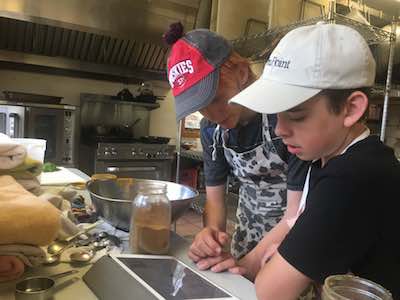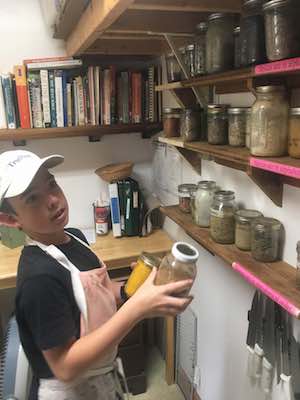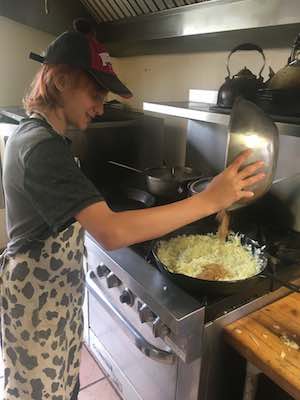How to Teach History in an Interesting Way

Middle schoolers don’t always appreciate learning history. Although they tend to be very curious, they are also at an age where they are more socially motivated than academically. They want to engage with their community and prove their worth to other people. In this context, learning historical facts and figures can feel obsolete. However, once engaged, middle schoolers often realize they enjoy learning about the past. The key is for teachers to understand how to teach history in an interesting way.
Using Internships to Teach History
One method for engaging students with history is to relate it to things they naturally want to do. Many middle schoolers enjoy being physical. Working and fulfilling a necessary purpose feels satisfying to them, at least more than sitting in a classroom. At Arthur Morgan School, the teachers understand this inclination and place their students in internships. The middle schoolers get the opportunity to work in the school’s garden, provide maintenance for the campus, and cook in the kitchen. However, the students aren’t just working. While they provide a valuable service to the school community, they are also learning history.
Internships combine the real work of AMS with students’ academics. (Internships are also used to teach science at AMS.) The students learn important concepts while they also gain useful life skills. By combining their natural draw toward real work that matters with history, AMS teachers have a found a way to make the topic interesting and engaging.
 History Class in the Kitchen
History Class in the Kitchen
Students in the kitchen internship learn about spices–not only how to use them to make delicious meals, but also their history. Many of the seasonings and spices people use in daily cooking have rich cultural histories, full of traditions, and exploitation. Most of the time students never hear these histories, but once they start learning about them, they can’t get enough.
During the internship, each kitchen intern chooses a spice to investigate further. They then write a research paper on it. All the while, they are using the spices in the kitchen to understand their practical use. As an additional project, each intern has their own day to lead the other students in cooking lunch for the school. Each recipe they choose must contain the spice they are studying. In this way, they share what they learn with the whole community. They also receive appreciation from the rest of the school for all their hard work.
Inspired Teaching
Isaiah Miller, one of AMS’s history teachers and its Kitchen Coordinator, speaks to his motivations for the class, “My inspiration was looking at our spice pantry with all the jars neatly lined up and labeled, and realizing how complicated the history is behind them. We get spices from the grocery store or bulk shipped in vacuum-sealed packaging, and we use them spontaneously in whatever recipe we’ve pulled up for the day. A little coriander and cumin here, a little nutmeg and cinnamon there, some turmeric or ginger. But these spices all have stories that in their own way tell a lot about human culture, trade, imperialism, and modernization.
“It’s also a fun topic because it mixes the very practical aspects of cooking with the art and history of this broader context. I was excited for students to be able to experiment with a certain kinds of cooking, while also delving further into spices and developing a life connection with this history.”
Successful Learning
The current group of interns (all seventh graders) are taking their work seriously. Silas H. made a coriander curry one day and coriander flautas with a sweet/sour coriander chutney on another. Nick made pizzas with veggies, tofu, and caramelized fennel bulbs. Silas M. made a nutmeg potato gratin as well as baked carrots rolled in a nutmeg butter. All the meals were delicious and appreciated by their fellow students.
When these three students finish their internship, they will have gained some very valuable life skills. They now know how to harvest, clean and prep vegetables whenever they need them. They understand that too much spice can spoil a recipe and they have exciting meals they can take home to their families. These middle schoolers also gained a better appreciation for history and how to research it. As Silas H. puts it, “I really like how internships are hands on. I learn better when it’s interactive!”
-by Nicholas Maldonado

